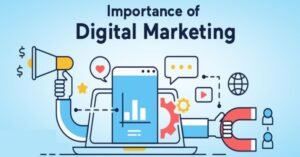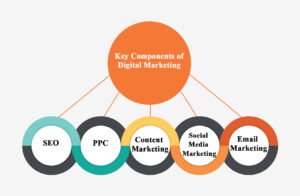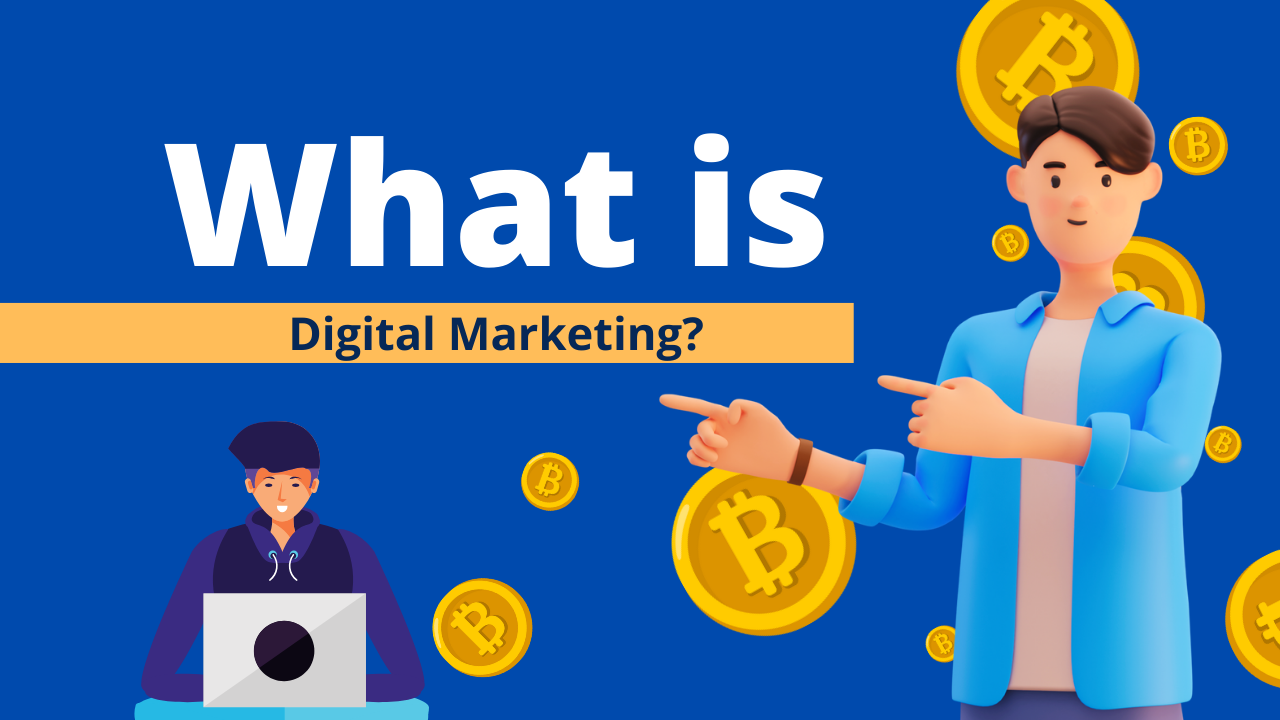As we are aware, internet marketing plays a crucial role in today’s market environment no matter the size of a company. This is where digital marketing comes in; this is where we are expected to excel. Digital marketing refers to marketing processes that involve the use of digital technologies to reach and communicate with customers. This may contain SEO, SMM, content, e-mail, PPC and others.
Why is Digital Marketing Important?

- Increased Visibility: Digital marketing ensures that companies catering to the public domain extend their campaign and coverage to the Internet hence attaining customer awareness.
- Improved Lead Generation: Digital marketing can therefore generate high-quality leads for change since the information disseminated is targeted at the right audience.
- Enhanced Customer Engagement: Digital marketing enables organizations to communicate with their customers directly on social media platforms, emails etc thus leads to better relations.
- Measurable Results: Promotion through the use of the internet also avails an opportunity to trace the success of a campaign.
- Cost-Effective: Digital marketing as a strategy can be cheaper than conventional marketing forms or techniques, especially when targeting a small business company.
Key Components of What is Digital Marketing

- Search Engine Optimization (SEO): SEO is the process of website design and development in order to achieve a better ranking on the SERP. This assists the business in drawingto natural traffic on the website in question.
- Pay-Per-Click (PPC) Advertising: PPC advertising is a form of advertising in which an advertiser pays for the ad placements in the Search Engine Results Page or on social media channels. This can be a very effective way to bring traffic to the site, for instance when a business is forming a new partnership or releasing a new product, but it also needs constant attention.
- Content Marketing: This process of creating and distributing relevant and helpful content in order to capture the attention of customers are referred to as content marketing. It may be a blog post, articles, video, infographics and so many more.
- Social Media Marketing: According to the usage of social media to target and interact with the customers it is defined as social media marketing. It can be useful for building a community, as well as to spread the word about a brand.
- Email Marketing: Email marketing refers to the use of mail in an attempt to promote products or services to a given list of recipients. It has the potential of being a great way on how to keep nurturing leads as well as closing more sales.
A Deeper Dive into Digital Marketing Strategies

- SEO Strategies:
- Keyword research
- On-page optimization
- Off-page optimization (link building)
- Technical SEO
- PPC Strategies:
- Keyword bidding
- Ad copy writing
- Landing page optimization
- A/B testing
- Content Marketing Strategies:
- Topic ideation
- Content creation
- Content distribution
- Content promotion
- Social Media Strategies:
- Platform selection
- Content creation
- Community engagement
- Influencer marketing
- Email Marketing Strategies:
- List building
- Email segmentation
- Email design
- Email automation
Case Studies: Real-Examples of Digital Marketing Strategies

- Case Study 1: SEO Small Business Company That Significantly Boosted Its Sales by 30%
- Case Study 2: This paper aims to use a case study to evaluate a Strategic Management process which at its core involves the creation of a community through a lestart-upthatverage on Social Media Marketing for a tech start up.
- Case Study 3: A B2B Firm That Authenticated High-Quality Leads Through Content Promotion
Measuring the Success of Your Digital Marketing Campaigns

- Key Performance Indicators (KPIs):
- Website traffic
- Lead generation
- Conversion rates
- Return on investment (ROI)
- Analytics Tools:
- Google Analytics
- Google Search Console
- Social media analytics tools
- Email marketing analytics tools
Conclusion
Many organisations today consider digital marketing as a key strategy to the success of their business in a digital world. It is therefore not surprising that once the various aspects have been identified, it is possible to step up the company’s visibility and create leads and sales.

